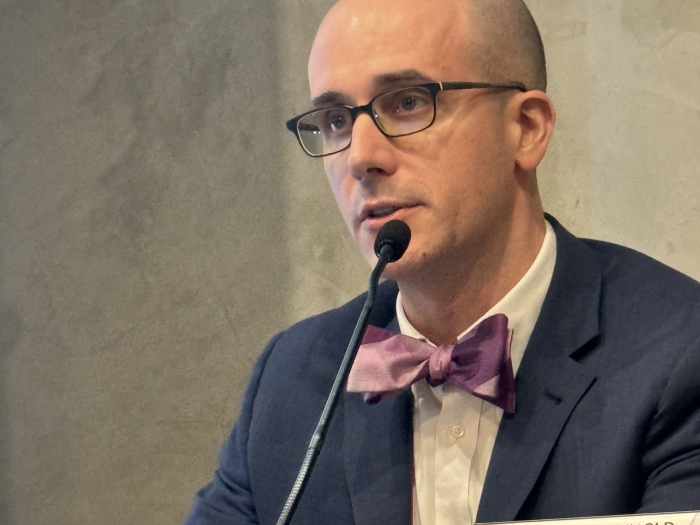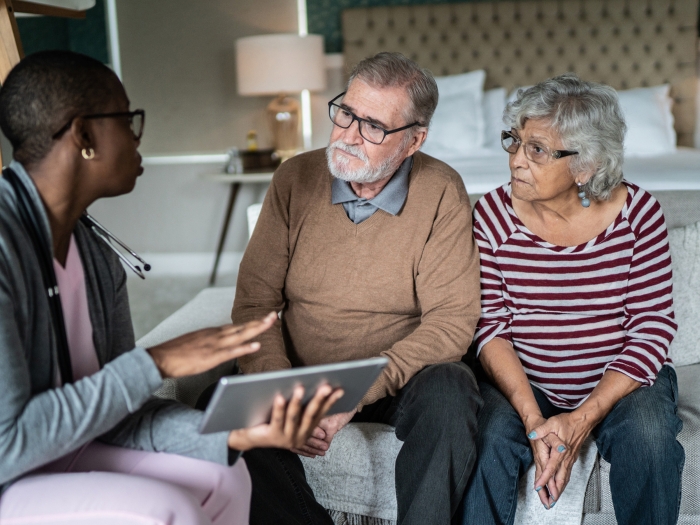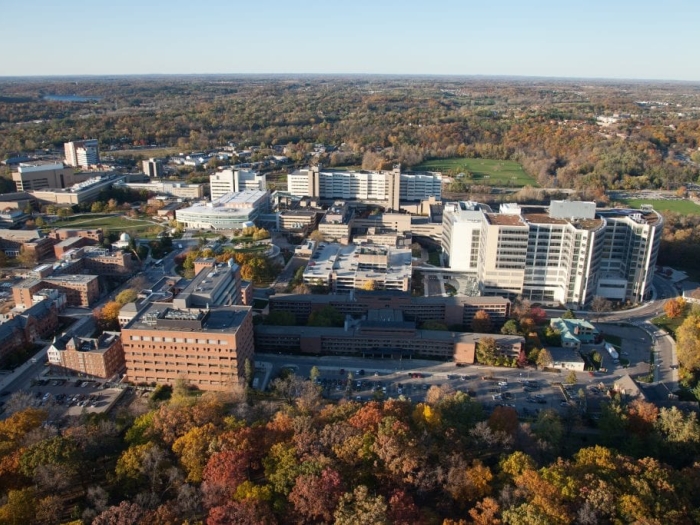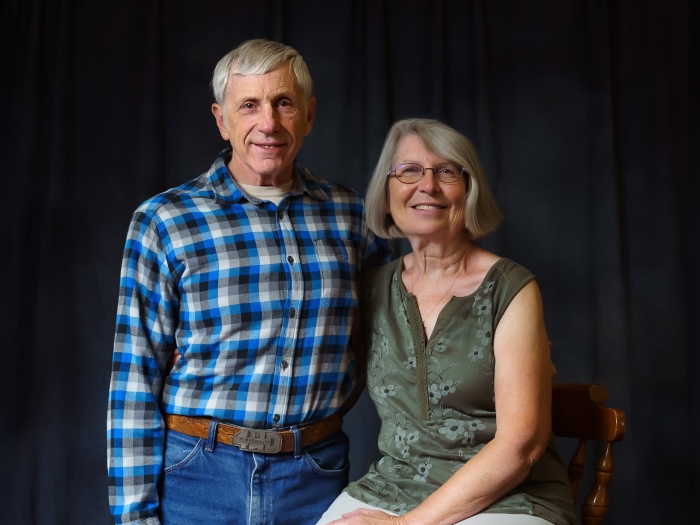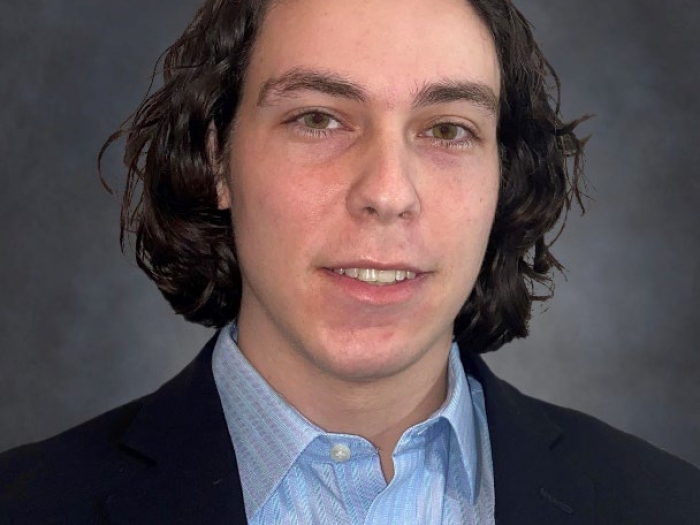It's been almost 10 months since our white coat ceremony. I remember walking across that stage with confidence, despite being one of the oldest students in my class, without a pre-med background, without having cultivated a childhood dream of becoming a physician. I remember scooping up my daughter and handing her my brand new stethoscope with nothing but joy. I was certain I would crush it.
Spoiler alert: I was wrong.
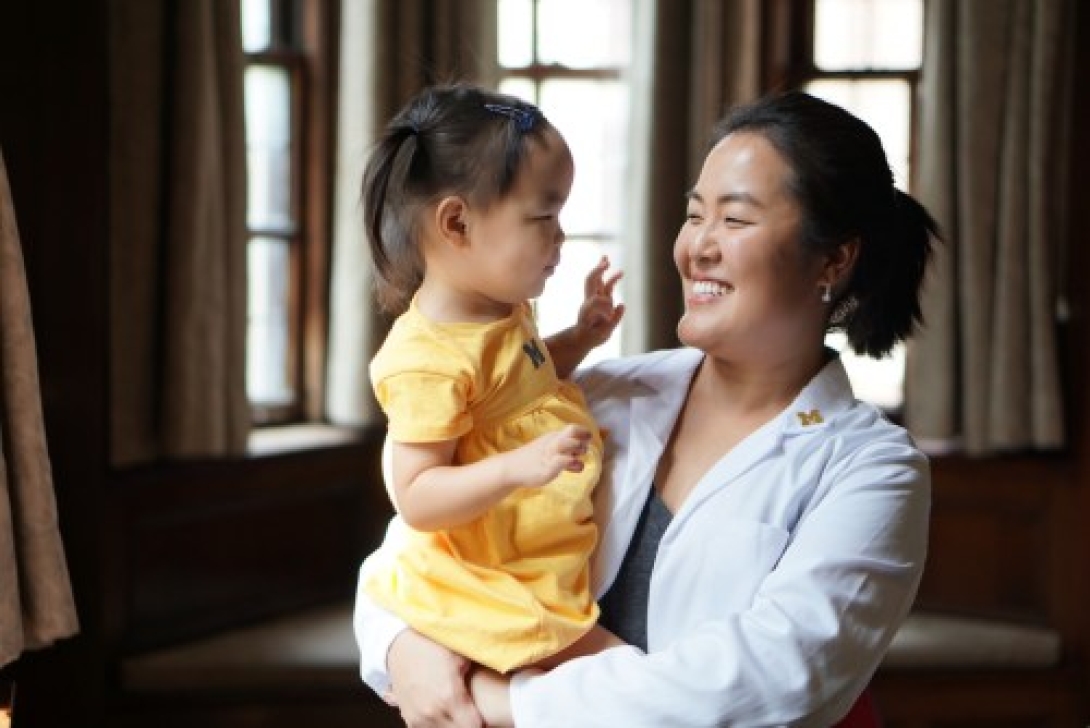
Very few women have children during medical school. There are even fewer of us who begin this journey with children, and it's no wonder why. I could not have imagined how unbearably hard this year would be, nor how hard it would be on my family. I wake up every morning battling imposter syndrome, wondering what I'm doing here, barely sleeping, barely surviving, often barely passing alongside my extraordinary peers who average in the 90s on Every. Single. Exam.
The University of Michigan's Medical School is a wonderful place. I am surrounded by brilliant and collaborative colleagues who not only want success for themselves, but for all of us. The intellectual curiosity and dedication to meaningful service is palpable in every lecture hall, every clinical encounter, and every conversation.
Above all, folks are generous and kind. When I show up late to Anatomy trembling and overwhelmed with guilt after fighting with my toddler all morning because I didn't have time to find her favorite socks or read her another book, I know I can crawl into my house counselor's office for a long hug and an overdue cry. When childcare plans fall through and my three-year-old audits my radiology small groups and free clinic meetings, I know my peers will gladly play hide 'n' seek in the halls of Taubman library with Claire so that I can have a moment to breathe.
Honestly, though? Medical school is just not made for mothers. Not yet, anyway.
I never had any intention of pursuing an M.D. I spent all of my twenties working in education policy and teaching in high-need public schools. Being an educator brought me tremendous joy; I saw great success within my classroom walls every day, and I thought I would do this good work forever. Then four years ago, I became unexpectedly pregnant with my daughter. In my search for prenatal care, I was surprised to find that my health insurance was not accepted by any of the many reputable medical centers in Chicago. I spent my entire pregnancy and much of my postpartum months in a thick cloud of depression and helplessness, not able to navigate this broken system that denied me access to quality care over and over again.
It shouldn't be this way. Women deserve more. We deserve better. I know now that I must be a part of the solution. And every morning -- when my daughter wakes me up at the crack of dawn, three hours after I've reviewed my last lecture slide and all I want to do is curl up in the fetal position and give up -- I know that I just have to get up and do my best again.
It's just so hard, y'all. And I'm so, so tired.
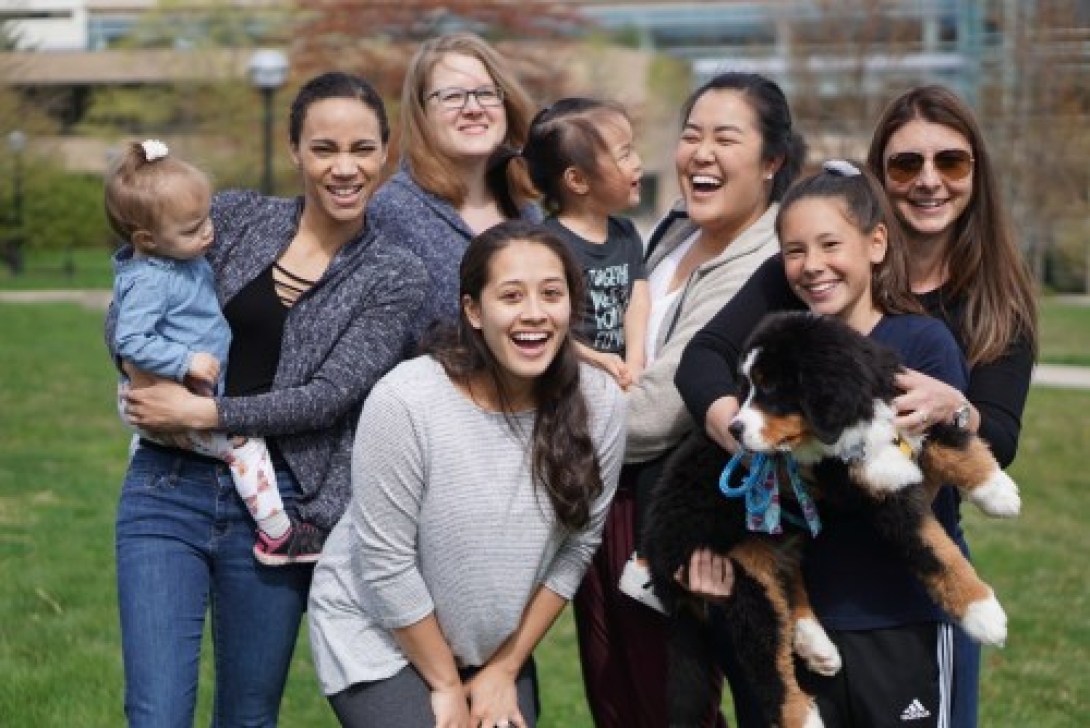
A few months ago, I was invited to a brunch at Dr. Helen Morgan's house with an unbelievably impressive group of U-M Women's Health physician mamas. I was so hesitant to attend, knowing that I'd be the only woman there without an M.D. in a sea of attendings and residents. Honestly, I was terrified.
But perhaps the best part about Michigan is the sincere commitment to creating a collegial and collaborative culture between faculty and students. It's real, you guys; I saw it firsthand. Their kids played with mine. Their spouses commiserated with my husband. And these beautiful, brilliant women included me in their honest reflections about the struggles of doing it all. That morning, I got a glimpse of what might lie ahead. It appears the exhaustion never ends, but there is persistent joy. Persistent reward. Persistent community. And persistent love.
So to the mamas here with me at the medical school: Thank you. Thank you for your tenacity and strength. Thank you for contributing your ever-valuable experiences and perspectives to our medical training. Thank you for choosing to care for each other, even when you barely have time to shower or get your kids to daycare before your classes or clinical shifts. Thank you for reminding me that it's never too late for us to pursue our dreams and do more good.
And to the mamas who are considering this path, who dream of becoming physicians: Join us. There are strong mothers here at Michigan who are doing it, and doing it together. Together we will continue to strengthen and grow our community. Together we will advocate for change so that mothers don't just barely survive in medical school -- we, too, deserve the opportunity to thrive.
We need more #MamasInMedicine because we mamas are good for medicine.
University of Michigan Medical School
Want top health & research news weekly? Sign up for Health Lab’s newsletters today!

